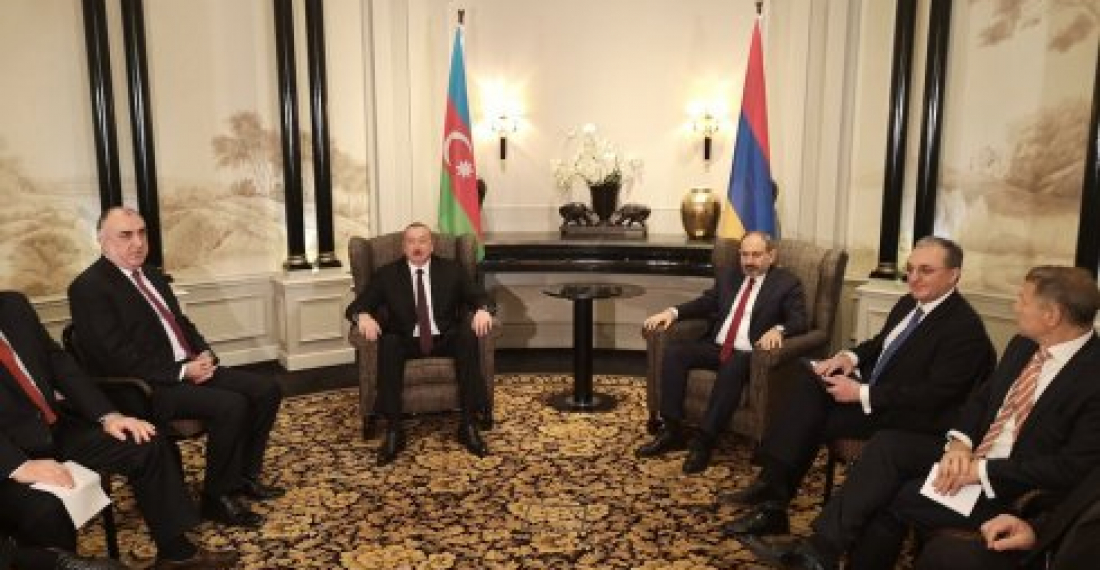The summit in Vienna between prime minister Nikol Pashinyan of Armenia and Azerbaijani president Ilham Aliyev has been positively assessed by both sides and by the international mediators.
The Russian news agency TASS reported that president Aliyev, speaking after the talks said that Azerbaijan and Armenia have given a fresh impetus to the negotiating process during the meeting,
"We highly assessed our talks, which were conducted in a constructive atmosphere. This was the first official meeting between the leaders of Azerbaijan and Armenia after a long break. All the previous talks had been held mainly in the format of international meetings," he said, adding, "The foreign ministers of the two countries have held several rounds of talks. The most important fact is that the current meeting gave another start to the negotiation process."
"We have discussed the issues related to strengthening confidence buiding measures during contacts between people," Aliyev continued. "Earlier, there had been contacts between members of the public. So it is too early to talk about this (humanitarian measures). We are back to the situation when you have to conduct substantial talks. We instructed the foreign ministers to meet in order to continue the negotiating process, and they will do that in the near future, most probably," TASS quoted the Azerbaijani leader as saying.
"The negotiating process should be supported by humanitarian measures. It is of huge importance that the format of talks remained unchanged - only Armenia and Azerbaijan discuss their problems as it was many years before," he went on.
"The negotiating process received a fresh impetus. We highly assessed the statement made by co-chairs of the OSCE Minsk Group on March 9. The document reaffirms that every changes in the format of the negotiating process may occur only if both sides agree," the president added.
TASS news agency also reported the Armenian reaction, saying that preim minister Nikol Pashinyan said after the meeting the talks have been productive, however, there has been no breakthrough.
"In general terms, I estimate the meeting as positive. However, I cannot say that there has been a breakthrough in the negotiation process, or an evolution," he said. "However, the main thing is that the sides started to talk about the issues. I hope that President Aliyev will also see this meeting as positive."
The views echoes a statement issued by the foreign ministers of the two countries and the OSCE Minsk Group co-chair diplomats shortly after the talks ended.
read more: Aliyev and Pashinyan hold two-hour tete-a-tete (Updated with joint statement)
source: commonspace.eu with TASS and other agencies
photo: The president of Azerbaijan Ilham Aliyev and the prime Minister of Armenia Nikol Pashinyan met in Vienna on Friday 29 March 2019 in the latest efforts to resolve the Karabakh conflict. (picture courtesy of @HikmetHaciyev twitter feed)






